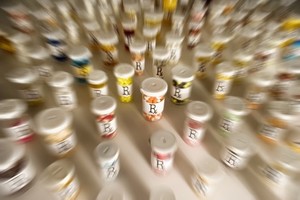The World Health Organization recently held its 59th Consultation on International Nonproprietary Names (INN) for Pharmaceutical Substances. At the meeting the issue of naming of biologicals including biosimilars was once again discussed.
During the meeting, which took place from 14–16 October 2014, the Alliance for Safe Biologic Medicines (ASBM) gave a presentation on ‘Global biosimilar naming standards: physician (and patient) perspectives’ in support of the WHO’s draft biological qualifier (BQ) proposal.
The WHO BQ proposal would assign a four-letter alphabetic code to all biologicals [1]. The ASBM, which represents healthcare, patient and physician groups, as well as originator biologicals companies, believes that the WHO’s BQ will prioritize patient safety. In September 2014, the ASBM and 14 of its member groups submitted comments to WHO supporting the BQ proposal because it ensures clear product identification and promotes manufacturer accountability.
In his presentation, Dr Joerg Windisch, Chief Science Officer at Sandoz Biopharmaceuticals and Chair of the EGA-European Biosimilars Group, highlighted that no additional component is needed in most jurisdictions including the European Union, where existing naming systems, which require biologicals to be identified through the recording of brand name and batch number [2], have worked very well. In fact, biosimilars have been used safely since 2006, and pharmacovigilance data shows that current tracking and adverse event reporting systems work well [2].
Dr Windisch stressed that the proposed BQ should not be linked to the active substance manufacturing site(s) but to the company which has the marketing authorization for the medicinal product, and that the proposed random four-letter design of the BQ would be difficult to remember and has the potential to confuse patients and healthcare professionals.
The European Generic medicines Association (EGA), although welcoming WHO’s efforts to streamline naming schemes for biologicals around the world, also asked the WHO INN expert group to generate different options for the proposed BQ, discusses them in a public workshop, and then has the different options user tested with all relevant stakeholders by an independent organization. ‘In the absence of such a study, a new system of identifiers cannot be supported and should not be implemented’, according to Dr Windisch.
EGA also believes that the proposed BQ system should be voluntary, apply to all biologicals and be applicable retrospectively.
The proceedings of the stakeholder session are to remain confidential until WHO has an opportunity to hold a closed session to discuss the BQ proposal.
Related article
Calls for biosimilars to have same INN at WHO meeting
References
1. GaBI Online - Generics and Biosimilars Initiative. WHO investigates use of a biological qualifier for biosimilars [www.gabionline.net]. Mol, Belgium: Pro Pharma Communications International; [cited 2014 Nov 21]. Available from: www.gabionline.net/Biosimilars/General/WHO-investigates-use-of-a-biological-qualifier-for-biosimilars
2. GaBI Online - Generics and Biosimilars Initiative. Biologicals in EU to be identified by brand names [www.gabionline.net]. Mol, Belgium: Pro Pharma Communications International; [cited 2014 Nov 21]. Available from: www.gabionline.net/Policies-Legislation/Biologicals-in-EU-to-be-identified-by-brand-names
Permission granted to reproduce for personal and non-commercial use only. All other reproduction, copy or reprinting of all or part of any ‘Content’ found on this website is strictly prohibited without the prior consent of the publisher. Contact the publisher to obtain permission before redistributing.
Copyright – Unless otherwise stated all contents of this website are © 2014 Pro PharmaCommunications International. All Rights Reserved.








 0
0











Post your comment